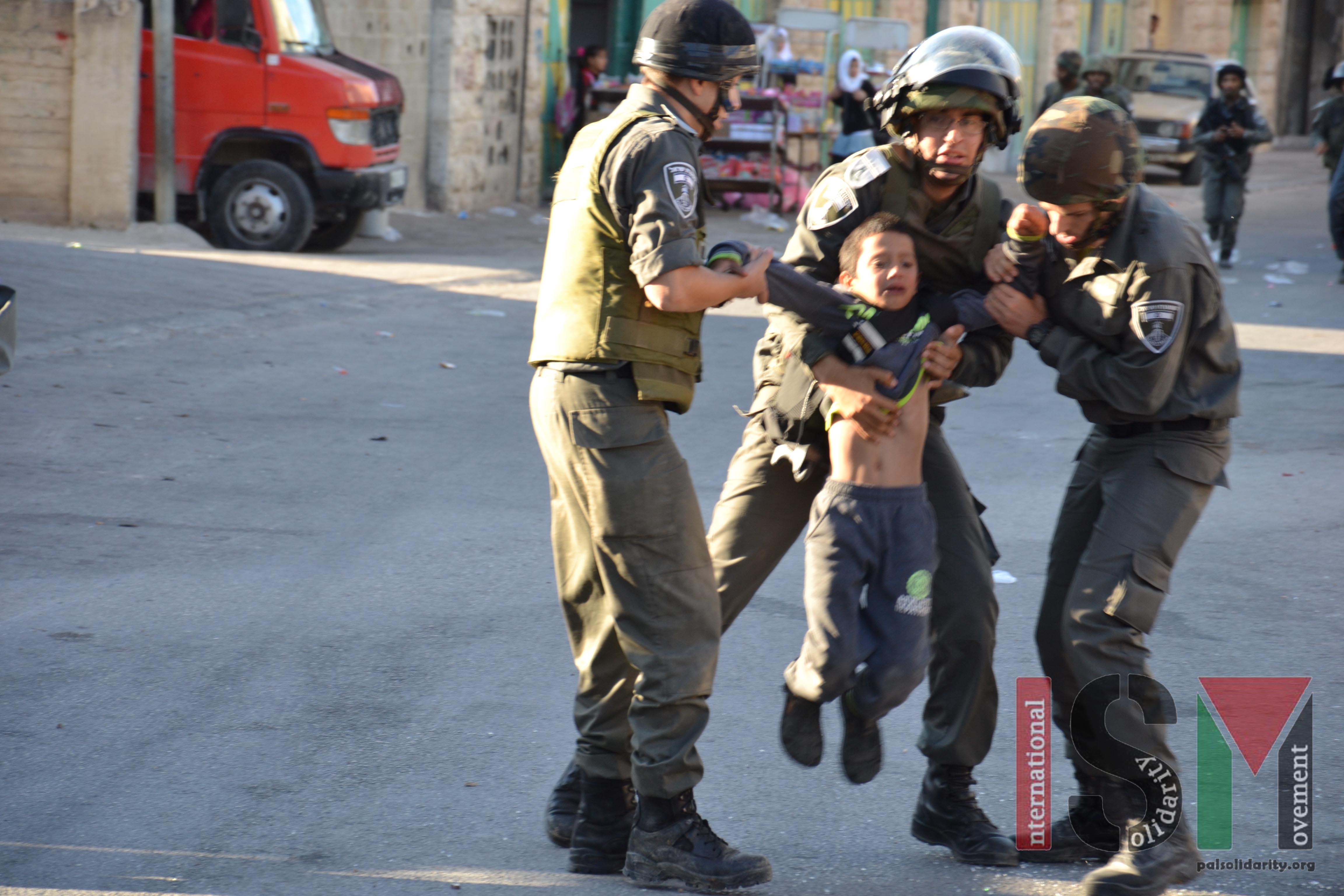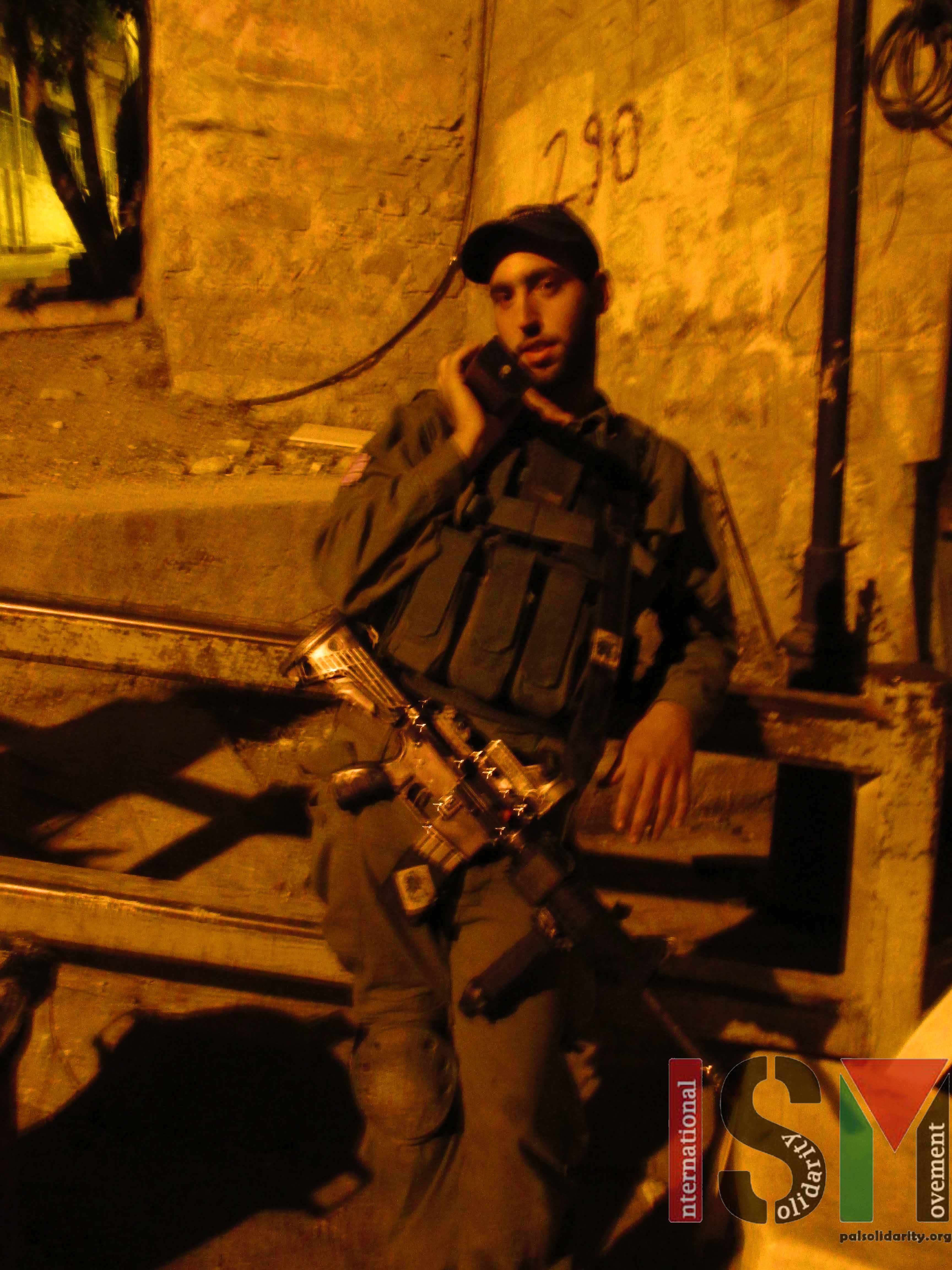Category: Video
-
VIDEO: Seven-year-old violently detained, one child and two adults arrested
8th September 2014 | International Solidarity Movement, Khalil Team | Hebron, Occupied Palestine This morning in al-Khalil (Hebron), through the Salaymeh checkpoint, a seven-year-old was forcefully detained and three more were arrested, including another child. At 07:40, approximately six young children started throwing small stones towards the checkpoint. A few minutes later a group of Israeli border…
-
Injured and forced to walk
27th August 2014 | International Solidarity Movement, Khalil team | Hebron, Occupied Palestine It was a warm Saturday night in late August in al-Khalil (Hebron). For the Palestinian children school was starting the next day, and a feeling of anticipation and excitement for a new year of learning floated over the hot Palestinian night. A group of…
-
VIDEO: 15 tear gas grenades and 5 stun grenades fired at schoolchildren
25th August 2014 | International Solidarity Movement | Hebron, Occupied Palestine Today in al-Khalil (Hebron), Israeli forces fired 15 tear gas grenades and canisters, as well as five stun grenades at children as they waited to go to school. Each morning and afternoon the children of al-Khalil, some as young as four-years-old, are forced to cross…



